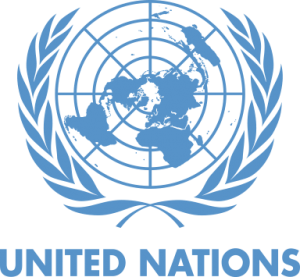ASSITEJ, the International Association of Theatre for Children and Young People, believes that much more needs to be done to meet all countries’ obligations with respect to Articles 13 and 31 of the UN Convention on the Rights of the Child. This is especially true in the light of the current pandemic, and the urgent need for equal opportunities for every child to live in a sustainable and healthy world.
From the ASSITEJ Manifesto
How do we choose to change?
In my country we are in various stages of activity – some still locked down, masked and under curfew, and some leading close to normal lives. We have invisible barriers between each of our states and territories along our border lines as we restrict travel – walls between us that have become friction points as never before. But as TYA and Youth Arts practitioners we are much more connected; hearing more diverse voices than before the pandemic; seeking knowledge; experimenting with different forms and learning from each other; discovering the cracks and warps in our systems – the lack of access for many and the increase in access for others; shaking up the way we operate and think about what we do; and trying in as many ways as possible to meaningfully reach the children and young people in our communities.
Each of our contexts that we offer the world of TYA in this time are vital in their difference. Our connection and collaboration with others leads us into strength and new paths – especially when within our own countries we may be filled with despair.
This is a time to be open and receptive, aware of what we don’t know as well as bringing what we do know to the discussion. Our specific cultural and societal contexts and practice are important to understand so that the global picture can be as full and inclusive as possible. The long distance connection we have all been practicing over the last months have given us great opportunities to meet new people and hear new voices.
It’s also an important moment to focus deliberately and clearly on what really matters. How do we choose to change?
One of the major projects during this time has been collective work around an ASSITEJ manifesto – adapted from a document generously offered by Action for Children’s Arts, www.childrensarts.org.uk. The process of adapting this document through the ‘coffee sessions’ has been a powerful example of how links between our members have grown over this year since the beginning of COVID-19. Our enforced online focus has resulted in increased access and inclusion, enabled a greater diversity of voices and allowed us to have nimble discussions that result in exchange of experience, support for action and collaboration. During this hard time we’ve learned so much that we can hold onto, even as we look with hope towards a world where encounters in real life are possible.
The manifesto is ready for launching. This document is a tool we can all use in different ways – according to our different situations and relationships with systems and government in our different countries. It provides a clear and definitive focus for our advocacy and adaptable pathways towards action. The members who have contributed have offered inventive and creative ways to make this manifesto visible across different sectors. The development of this manifesto has been a collaborative effort and it compliments and underpins the specific action plans and manifestos we create each time we gather. It has been forged in response to this moment in history – when so many of our members had the same cry – “what about the children?”
Article 31, Every child has the right to rest and leisure, to engage in play and recreational activities appropriate to the age of the child and to participate freely in cultural life and the arts. Governments shall respect and promote the right of the child to participate fully in cultural and artistic life and shall encourage the provision of appropriate and equal opportunities for cultural, artistic, recreational and leisure activity.
Article 13, The child shall have the right to freedom of expression; this right shall include freedom to seek, receive and impart information and ideas of all kinds, regardless of frontiers, either orally, in writing or in print, in the form of art, or through any other media of the child’s choice.





